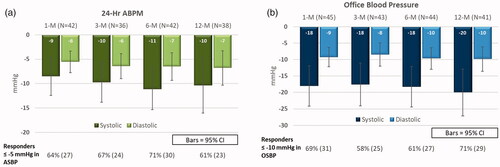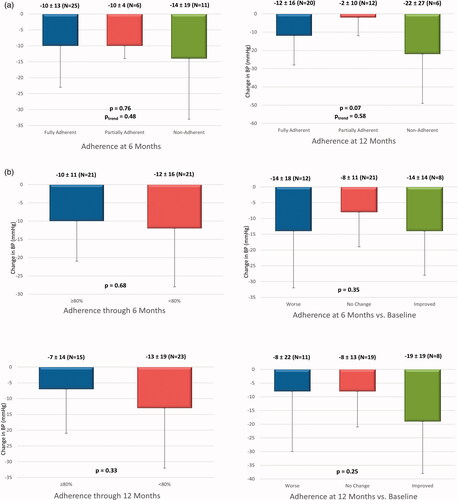Figures & data
Table 1. Baseline characteristics.
Figure 1. Systolic ambulatory (a) and office (b) blood pressure 1, 3, 6, and 12 months after renal denervation. Mean reductions in 24-h systolic ambulatory (ASBP) (a) and office (OSBP) (b) blood pressure over time.

Table 2. Adherence to antihypertensive medication during the study.
Table 3. Change in antihypertensive medication adherence during the study.
Figure 2. Change in 24-h systolic ambulatory blood pressure at 6 and 12 months vs. adherence. (a) Change in 24-h systolic ambulatory blood pressure in fully, partially, and non-adherent subjects. (b) Change in 24-h systolic ambulatory blood pressure presented by subjects who were ≥80 and <80% adherent to antihypertensive treatment and by worse, no change, and improved adherence.

Table 4. Responder analysis of change in antihypertensive medication adherence during the study.
